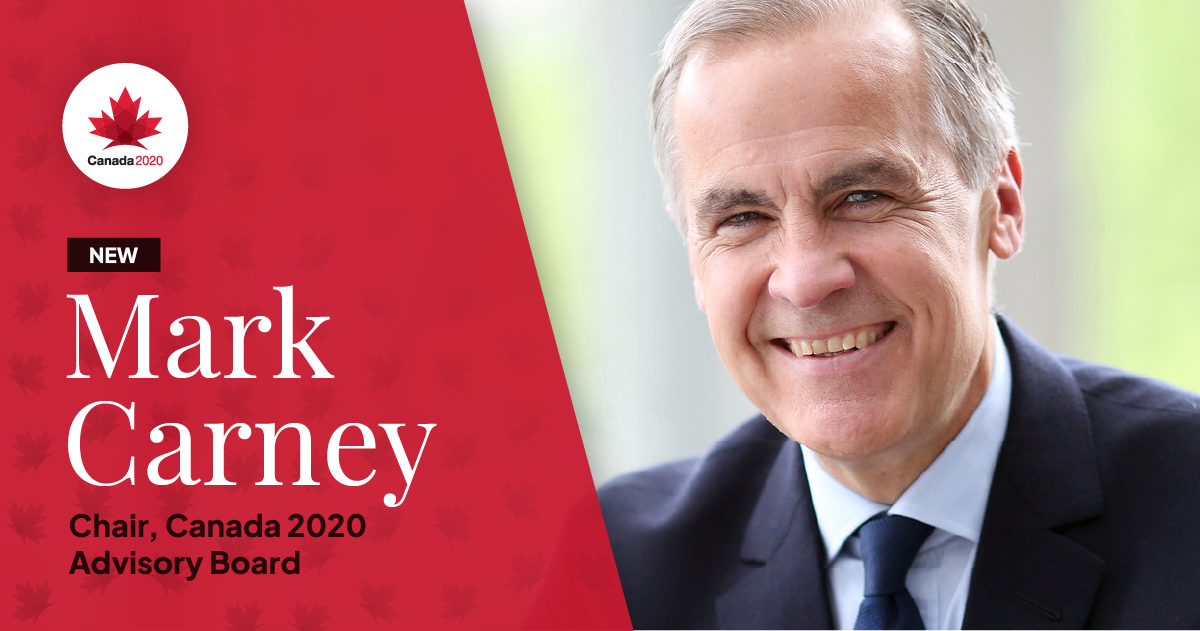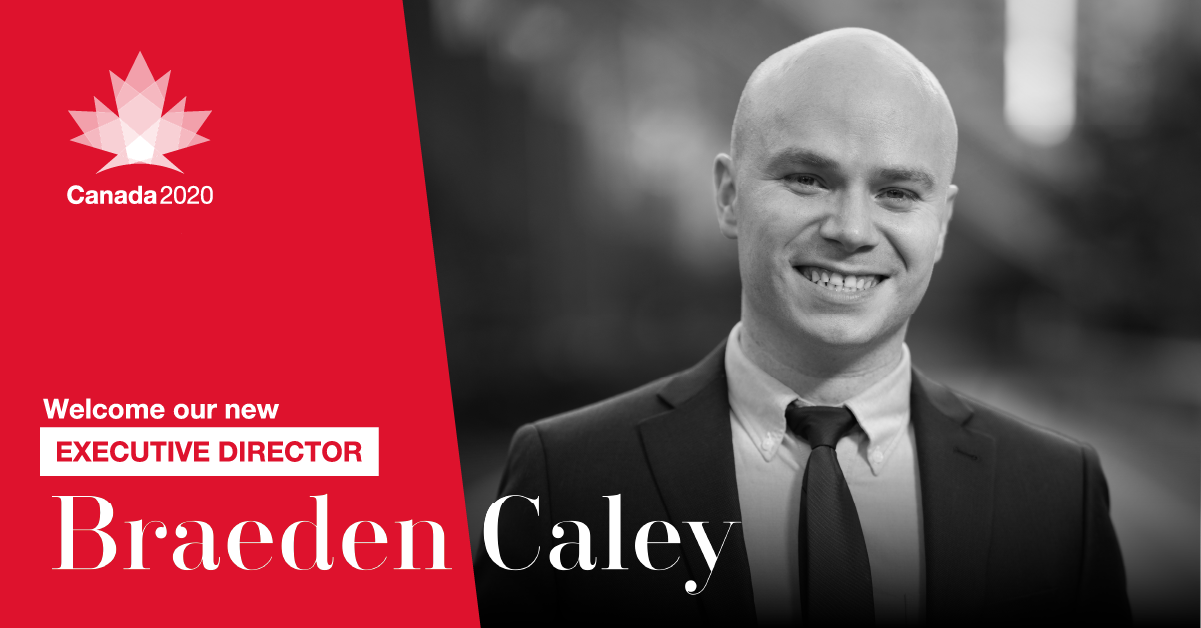OTTAWA – Canada 2020 has announced today that Mark Carney, United Nations Special Envoy for Climate Change and Finance, and former Governor of the Bank of Canada and the Bank of England, will serve as Chair of Canada 2020’s new Advisory Board – to be focused on ambitious progressive public policy solutions as Canada looks ahead from the pandemic.
“Few leaders have made such a positive and extensive contribution to the shaping of public policy in Canada and internationally as Mark Carney,” said Anna Gainey, Executive Chair of Canada 2020. “Building and working with a new world-class Canada 2020 Advisory Board, our team is looking forward to the many ways that Mark’s unique insights and experience will help ensure that Canada’s progressive community can continue to lead with real solutions to our most pressing shared challenges and opportunities.”
The new Canada 2020 Advisory Board will bring together a cross-section of leaders to help generate the ideas and infrastructure needed for Canada to confront the intersecting challenges facing today’s world, and start new conversations about Canadian progressive public policy priorities.
“With our world beset by a series of profound shocks, it’s time to come together and harness the power of markets to serve all Canadians – so that value serves our values,” said Carney. “Canada 2020 will play a central role in how we shape that better future for all, and I can’t wait to be part of the big conversations about the changes we need to grow together.”
Born in Fort Smith, Northwest Territories, and raised in Edmonton, Alberta, Carney is a globally-recognized Canadian economist, public policy leader, sustainability advocate, and author. He serves as the United Nations Special Envoy for Climate Change and Finance, Vice Chair of Brookfield Asset Management and Head of Transition Investing, and previously served as Governor of the Bank of Canada and Governor of the Bank of England.
“Canada 2020 has long been a robust engine for bold policy solutions both within Canada and with progressives far beyond its borders,” said Matt Browne, founder of Global Progress and Canada 2020 Board member. “Mark Carney’s leadership and the international reach of his expertise will accelerate Canada 2020’s work to help generate real solutions to today’s most urgent challenges, and a hopeful new progressive vision for our future.”
Founded in 2006, Canada 2020 produces original research, hosts wide-ranging events, and starts meaningful conversations about Canada’s direction. An active member of the Global Progress network, Canada 2020’s goal is to build a community of progressive ideas and people that will move and shape governments.
“Mark Carney has been on the front lines of how Canada and the world have responded to several of the most defining challenges that this century has seen so far,” said Braeden Caley, Executive Director of Canada 2020. “Mark’s leadership and guidance as Chair of our new Advisory Board will form a strong foundation for the next chapter in Canada 2020’s work to shape a better, fairer, and greener future.”


